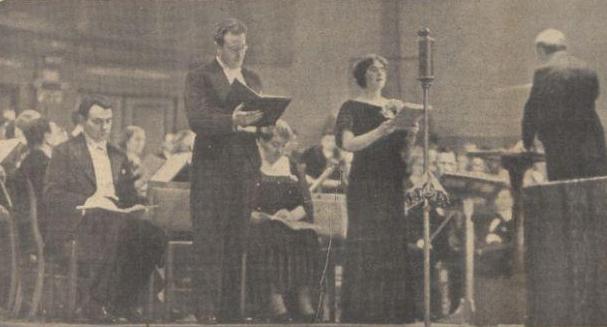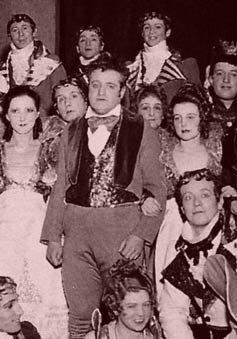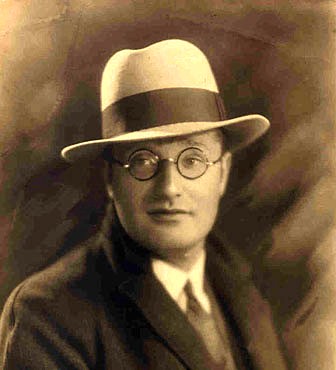Michel Gobets
Machiel Gobets (called Michel) was a tailor, and a soloist of the choir of the Grote Synagoge (Great Synagogue) in Amsterdam. After studying voice, piano and opera at the Amsterdam conservatory and graduating in 1932, he became a professional singer. He continued to sing in the synagogue choir, which also gave secular concerts as Amsterdamsche Joodsche Koor, and gave many, many concerts also with other choirs (particularly with the Socialist "De Stem des Volks" in Rotterdam); he sang regularly on the radio, and he also appeared in opera, mostly in concert performances, but occasionally also on stage (not exactly praised for his acting abilities). His repertory was far indeed from orthodox Jewish: he sang oratorios and masses by Händel, Bach (Matthäuspassion, for instance) and Haydn, he sang opera, as already mentioned, and he appeared on Saturdays. After a few years, the rabbi banned him from further singing in the Grote Synagoge, but he continued to sing with the synagogue choir's secular alter ego.
 His opera and operetta repertory was very unusual, and very interesting: Cléon in L'ivrogne corrigé by Gluck, Peter le Roux in Rose et Colas by Pierre-Alexandre Monsigny, Vogelsang in Mozart's Schauspieldirektor, Nuraddin in Gluck's Le cadi dupé, Miguel in Pépito by Offenbach, Timante in Lucile by Grétry, Max, Ernesto, Jacquino, Shujskij as well as the Simpleton, Faust in La damnation de Faust, Symon (Bettelstudent), Acis (Acis and Galatea by Händel), Hoffmann (in January 1940 in Amsterdam for the new opera company Nederlandsche Opera Stichting).
 In May 1940, Nazi Germany occupied the Netherlands, and step by step, German anti-Jewish restrictions were introduced there. From September 1941, Jewish artists were only allowed to appear before Jewish audiences; in Amsterdam, the Jewish community could maintain a Jewish theater for a while, where Gobets sang Edwin in Die Csárdásfürstin. He also appeared in musical revues and in concerts, all strictly for Jewish audiences. In May 1943, Gobets was arrested and deported into the Westerbork concentration camp, where he gave concerts for his fellow inmates. In January 1944, he came to the Theresienstadt Ghetto, where he sang Tamino and Don José, and performed several oratorios. In September, he was transferred to the Sachsenhausen concentration camp, and in November to Dachau-Kaufering, where he died from either typhus or tuberculosis, just nine days before the US military liberated the camp. Gobets left four published sides, three as a soloist of the Grote Synagoge choir and the one solo item above. There is also at least one radio recording of his voice still extant. Reference 1 and picture source; reference 2
|
